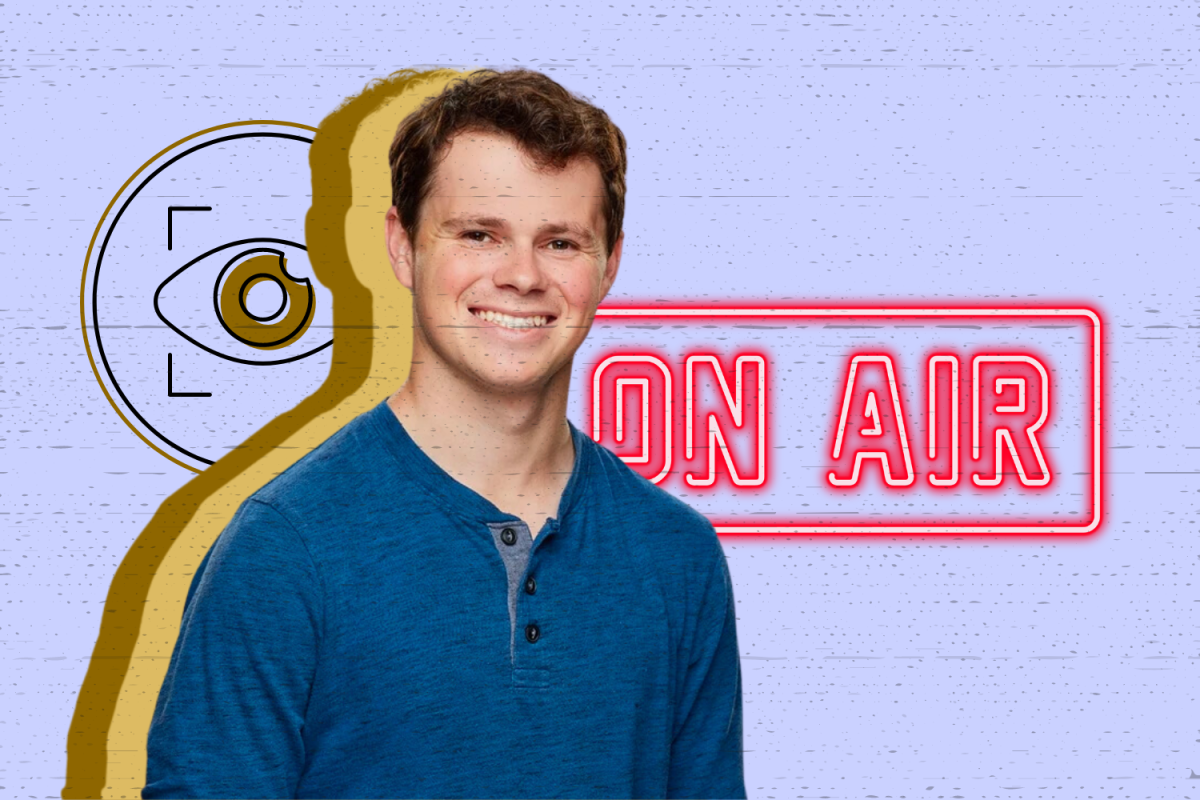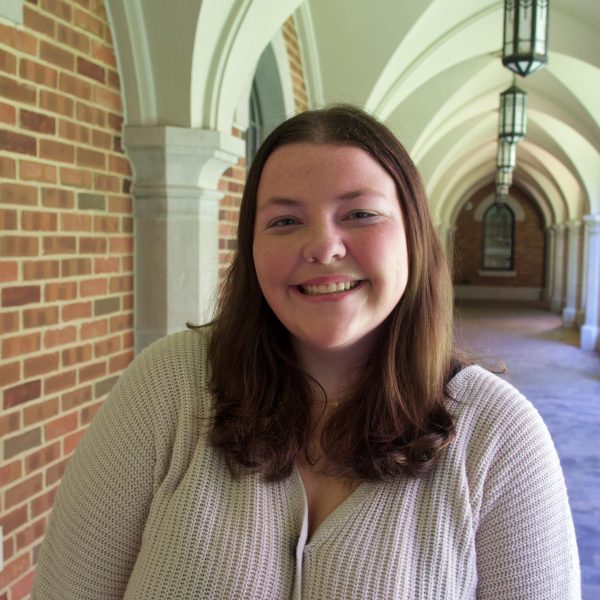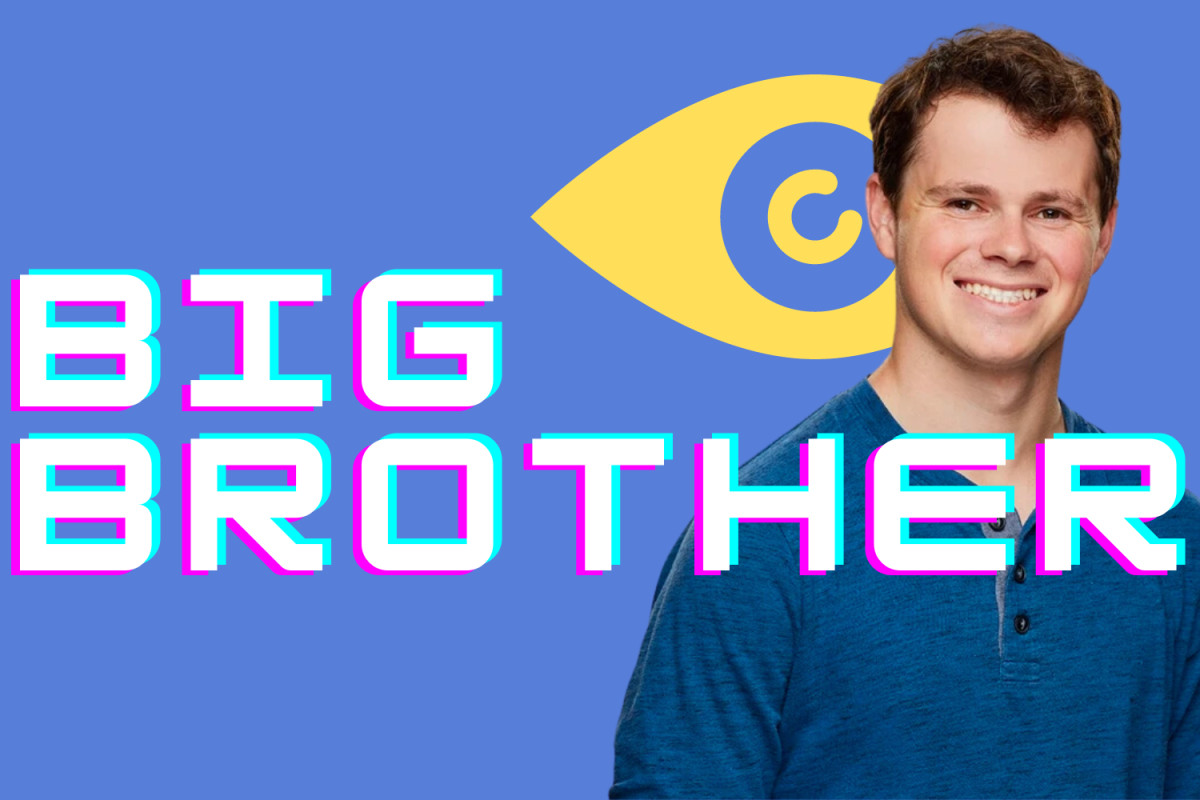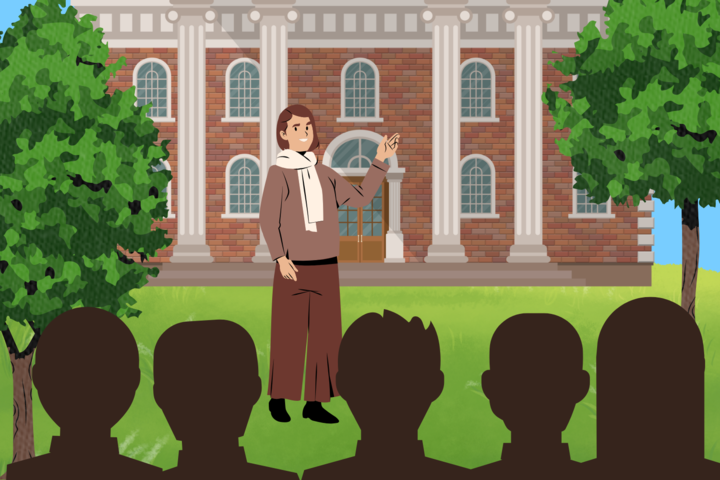For many students, the spring semester is spent cramming for exams or applying for internships. Despite all these responsibilities, senior Cory Wurtenberger, who is double-majoring in political science and communication studies, still wanted to apply for CBS’s “Big Brother,” and ended up submitting his initial audition tape at 3 a.m.
“This opportunity is so cool; the decision to apply was on a whim,” Wurtenberger said.
The ball started rolling quickly, with production interviews taking place throughout the semester. Spoiler alert: He was cast and appeared on the hit show last Fall, placing eighth in the competition.
Between sharing a space with 16 competitors at the start of the show, which Wurtenberger called “miserable” and total isolation from the outside world, there was a lot of change to adapt to. While on the show, there was supposedly an outdoor space where players could spend their downtime. Yet, this space was not as available as it seemed.
“The backyard is closed 80% of the time,” Wurtenberger said.
This is because production utilizes it for different competitions to settle who the next HOH (Head of Household) and POV (Power of Veto) will be. This is an important component of the game, as the HOH nominates two houseguests, and the POV has the choice to save a nominee or dispose of the power. These competitions can range from mental to physical.
In addition to the physical change, there were several other factors of the competition that proved stressful. Entering the show with a defined social strategy to build alliances is a crucial element to success in the competition and added to the complexity. Having to choose between being “alone” or playing a good game — whether that be making alliances with other houseguests or strategizing based on the nominations — was a difficult choice to make.
“There’s no alone time, ever,” Wurtenberger said. “Even when you get alone time, you’re stressed that other people are strategizing, so you have to go find people. Second, you’re not alone because the camera would go straight to you.”
After being evicted to the jury house, Wurtenberger was able to finally feel at ease from the cutthroat competition he experienced. For context, the jury house is open for the last seven evicted houseguests. Even though they can’t play in the competition, they hold the power to vote for the winner. He was able to spend his days away from the camera, except for media days when new jurors would enter. On the show, they weren’t allowed to be exposed to any outside information, including anything from the show. In the jury house, it wasn’t as strict; they were able to watch actual television, although Wurtenberger said the television was closely monitored.
“My mom was like ‘you should bring your LSAT prep books for jury,’” Wurtenberger said.
While his academics were difficult to keep up with in the house, taking a leave of absence in the fall, Wurtenberger returned to Vanderbilt’s campus for the spring semester. The show wrapped up production in October. When he stepped foot back on campus, someone recognized him from “Big Brother.”
“That part of it is always gonna be bizarre to me, but I’m super grateful,” Wurtenberger said.
Relating to campus, Wurtenberger felt that his time at Vanderbilt helped him through the show. In a classroom setting, he contributed to many conversations, but still attempted to tone it down and be quiet. This helped him when it came to being surrounded by big personalities on the show.
He credits Vanderbilt with teaching him to lay low the first couple of weeks before making big moves. While certain strategies of his failed, his ideal plan was to come off as non-threatening amongst his competitors, which he feels he succeeded in.
This season of “Big Brother” was very complicated and unconventional compared to others, which isn’t atypical per Julie Chen Moonves’ “Expect the Unexpected,” which is a notable phrase on the show. However, this season always had shifting numbers with one specific week where a plot twist changed a final eight back to a final 10, with evicted houseguests returning. Wurtenberger was not one of these returning houseguests, though he had an involvement in those houseguest’s eviction. Wurtenberger felt like progress was lost when these twists would occur.
While it didn’t turn out exactly as he’d planned, “Big Brother” taught Wurtenberger certain skills that he has implemented into his daily life, one of them being social. In the house, he had to be social, even if he didn’t want to.
“I’m not as antisocial as I thought I was, ” Wurtenberger said.
It hasn’t changed his personality, but this new skill has allowed him to recognize his ability to go out and socialize, whether it be speaking in front of an intimidating figure, or clubbing. Acclimating back into life was a slow process both physically and mentally, as his sleep schedule suffered throughout the show.
“The hours they let you sleep are super awkward, and the lights are blaring, and I can’t sleep because I’m thinking about all these things,” Wurtenberger said.
While he feels he has somewhat adjusted, it took him some time. His experience on “Big Brother” was nothing short of chaos, but Wurtenberger would do it a billion times over if he could.
“I would do [Big Brother] a billion times over,” Cory Wurtenberger said.
Wurtenberger plans on graduating from Vanderbilt this summer, with many skills and experiences to add to his background; Big Brother being one of them. I, like many, watched this past season of Big Brother, so it was a privilege to have the opportunity to interview him.










